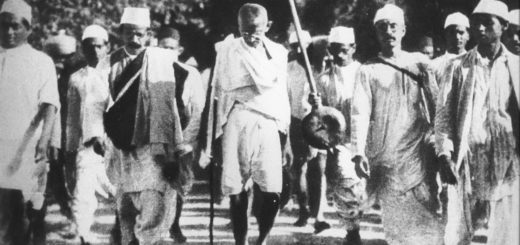C.L.M. by John Masefield – Summary
“C.L.M.” is a poem by John Masefield that talks about the special bond between a person and their mother. It reflects on how the speaker’s life began in their mother’s womb, where her love and care helped them grow. Even though the mother is no longer alive, the speaker wonders what they have done to remember and appreciate her. They also acknowledge that women still face challenges and inequality in society. The poem reminds us of the importance of honoring and cherishing the love and sacrifices of our mothers.

In the dark womb where I began
My mother’s life made me a man.
Through all the months of human birth
Her beauty fed my common earth.
I cannot see, nor breathe, nor stir,
But through the death of some of her.
In this stanza, the speaker talks about how they were formed and grew inside their mother’s womb. They explain that their mother’s life played a crucial role in their development and transformation into a grown person. Throughout the months of pregnancy, the speaker suggests that their mother’s beauty provided them with nourishment. The stanza ends by expressing that the speaker’s ability to see, breathe, and move is only made possible because their mother had to go through some difficult and painful experiences. It highlights the special connection between a mother and her child, and how the child relies on the mother for their growth and well-being.
Down in the darkness of the grave
She cannot see the life she gave.
For all her love, she cannot tell
Whether I use it ill or well,
Nor knock at dusty doors to find
Her beauty dusty in the mind.
This stanza talks about what happens after the mother passes away and is buried in the grave. It says that in the darkness of the grave, the mother cannot see what has become of the life she gave. Even though she loved her child, she cannot know whether the child is using that life in a good or bad way. The stanza also mentions that the mother cannot come back to check or find out if her beauty and love are remembered and cherished by the child. It shows that once someone passes away, they can no longer see or have control over what happens in the world.
If the grave’s gates could be undone,
She would not know her little son,
I am so grown. If we should meet,
She would pass by me in the street,
Unless my soul’s face let her see
My sense of what she did for me.
In this stanza, the speaker imagines what would happen if it were possible for the grave to open and the mother to come back to life. The speaker says that if this were to happen, the mother wouldn’t recognize her child because the child has grown up. Even if they were to meet on the street, the mother would pass by without recognizing the child. However, the speaker believes that if the mother could see the child’s soul, she would be able to sense the gratitude and appreciation the child has for everything she did. The stanza highlights the idea that even though a loved one may be gone, their impact and influence can still be felt and remembered.
What have I done to keep in mind
My debt to her and womankind?
What woman’s happier life repays
Her for those months of wretched days?
For all my mouthless body leech’d
Ere Birth’s releasing hell was reach’d?
In this stanza, the speaker reflects on their debt to their mother and all women. They question what they have done to remember and appreciate their mother’s sacrifice and the hardships she endured during pregnancy. They ponder if there is anything that can truly repay a woman for the difficult months she goes through before giving birth. The speaker also mentions their existence as a helpless and dependent being in the womb, receiving nourishment from their mother’s body. The stanza highlights the speaker’s contemplation of the immeasurable debt they owe to their mother and the significance of acknowledging and honoring the sacrifices of women in general.
What have I done, or tried or said
In thanks to that dear woman dead?
Men triumph over women still,
Men trample women’s rights at will,
And man’s lust roves the world untamed.
O grave, keep shut lest I be shamed!
In this stanza, the speaker expresses their regret and concern about their lack of action or gratitude towards their deceased mother. They question what they have done, said, or tried to show their appreciation. The speaker also acknowledges the ongoing challenges faced by women, with men often triumphing over them and disregarding their rights. They express frustration at the unchecked lust of some men, which continues to cause harm. The stanza ends with the speaker pleading for the grave to remain closed, fearing shame if their actions or inactions fail to honor women and their struggles. The stanza highlights the importance of recognizing and respecting women’s contributions and the need for equality and justice.
Overall, the poem is about appreciating and respecting our mothers. It asks us to think about how much we owe to our mothers and what we have done to show our gratitude. The poem also talks about how women sometimes face unfair treatment and inequality in society. It reminds us to value and support women’s rights. It teaches us to be thankful for the love and sacrifices of our mothers and to treat everyone with kindness and fairness.














